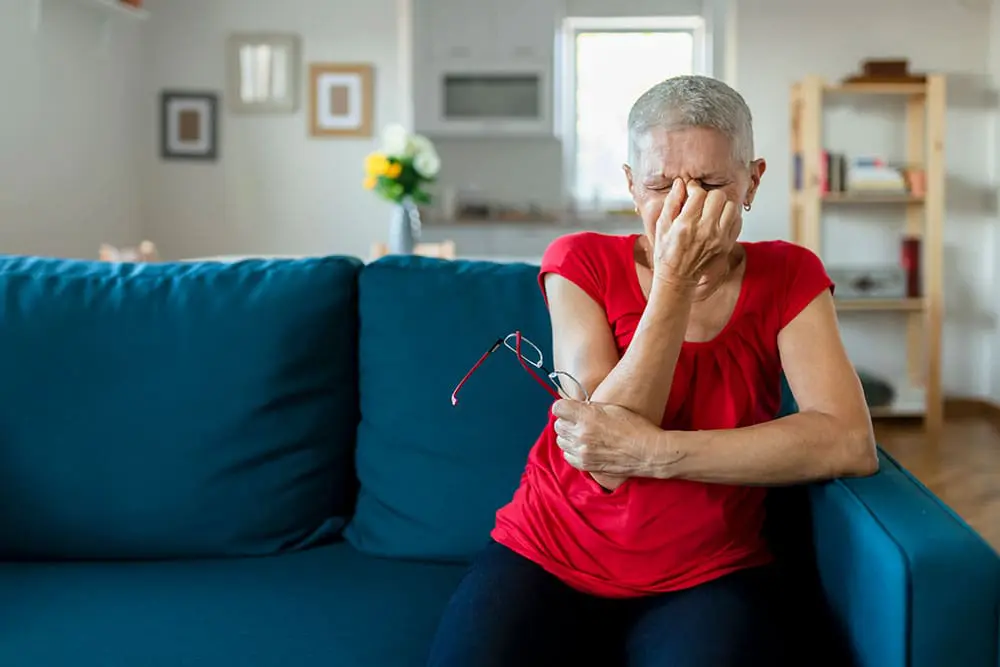
Caring for an ill or elderly loved one can take a lot out of you. Your days may be filled with driving them to doctor’s appointments and making sure they have their medicines. You may need to help them pay bills and keep their house clean. You may even need to help with personal care, like bathing and using the bathroom.
When you put a lot of energy into others’ needs, it’s easy to forget about your own. This can lead to a feeling of physical and emotional exhaustion called burnout. It can sneak up on you before you know it. If you aren’t sure you’re dealing with caregiver burnout, watch for these signs.
VNS Health offers in-home services that provide the care your family member needs and support you.
Signs of Burnout
Here are six signs of caregiver burnout to watch out for.
- You’re always stressed. Caring for a loved one can be stressful, especially when you also have a job and a family of your own. Worry, panic, and lack of focus can be signs of stress — and long-term stress that doesn’t go away can be a sign of caregiver burnout. Frequent colds or headaches, or the development of chronic illnesses, may signal that you are doing too much.
- You’re exhausted. Fatigue is another sign that you may be burning out. Stress and worry can interfere with your sleep. You may wake up several times a night if you are caring for a person who wanders or is at risk of falling out of bed. Having a bad night now and then is one thing, but feeling tired all the time is not normal — or good for your health.
- You’re angry. When you’re caring for a sick or aging loved one, you may feel that you have to be upbeat and nice all the time. But getting frustrated or annoyed sometimes is natural, especially if your loved one lashes out at you. But if you find yourself feeling angry all the time, resenting your caregiving demands (or your loved one), or exploding over little things, you might be at risk of burnout.
- You’re weepy. It is hard to watch a loved one get sicker or struggle to care for themselves. You may think that you aren’t doing a good job or that you can’t make the person better. You may also feel guilt, regret, or grief. It’s natural to feel sad and cry sometimes — especially if you are worn out. But if you burst into tears at the drop of a hat, that might be a sign that you are experiencing burnout.
- You’ve stopped seeing friends. Caregiving can take up a lot of your free time. You may have to cancel plans sometimes. You may feel too tired to see friends like you used to. You might fear that they won’t understand what you’re going through. This can make you feel alone just when you most need support. Avoiding friends — whether it’s by ignoring texts or phone calls or making excuses for not getting together — can be a sign of burnout. Spending time with your friends is an important part of finding balance in your caregiving role.
- You’ve let your health slide. When you’re a caregiver, stress and lack of sleep can mean that you neglect your own health. You might eat more junk food, or forget to eat at all. You may put off your own medical or dental visits. You may also be less likely to exercise. If you have to help your loved one in and out of bed or push a wheelchair, it’s important to be strong to prevent injuries. When you don’t feel your best emotionally and physically, you’re more likely to experience burnout as a caregiver.
You’ve Noticed Signs of Caregiver Burnout. Now What?
If you’ve started to notice signs of burnout, it is important to try to reduce your stress level. Self-care activities — like going for a walk, taking a nap, or getting coffee with friends — can have a positive impact on your physical, mental, and emotional health.
If the signs above sound like your everyday life, you may have already reached the point of burnout. That’s okay. You have options to help combat stress and other caregiving challenges:
- Join a caregiver support group so you don’t feel alone.
- Seek out individual therapy to help you with your emotions.
- For short-term, temporary relief, look into respite care.
- A home health aide may be what you need for longer-term support.
- Geriatric care management is customizable, so you can get guidance tailored to your and your loved one’s needs.
Feeling burned out doesn’t have to be permanent. Self-care and other support can make a big difference if you catch burnout signs early.


